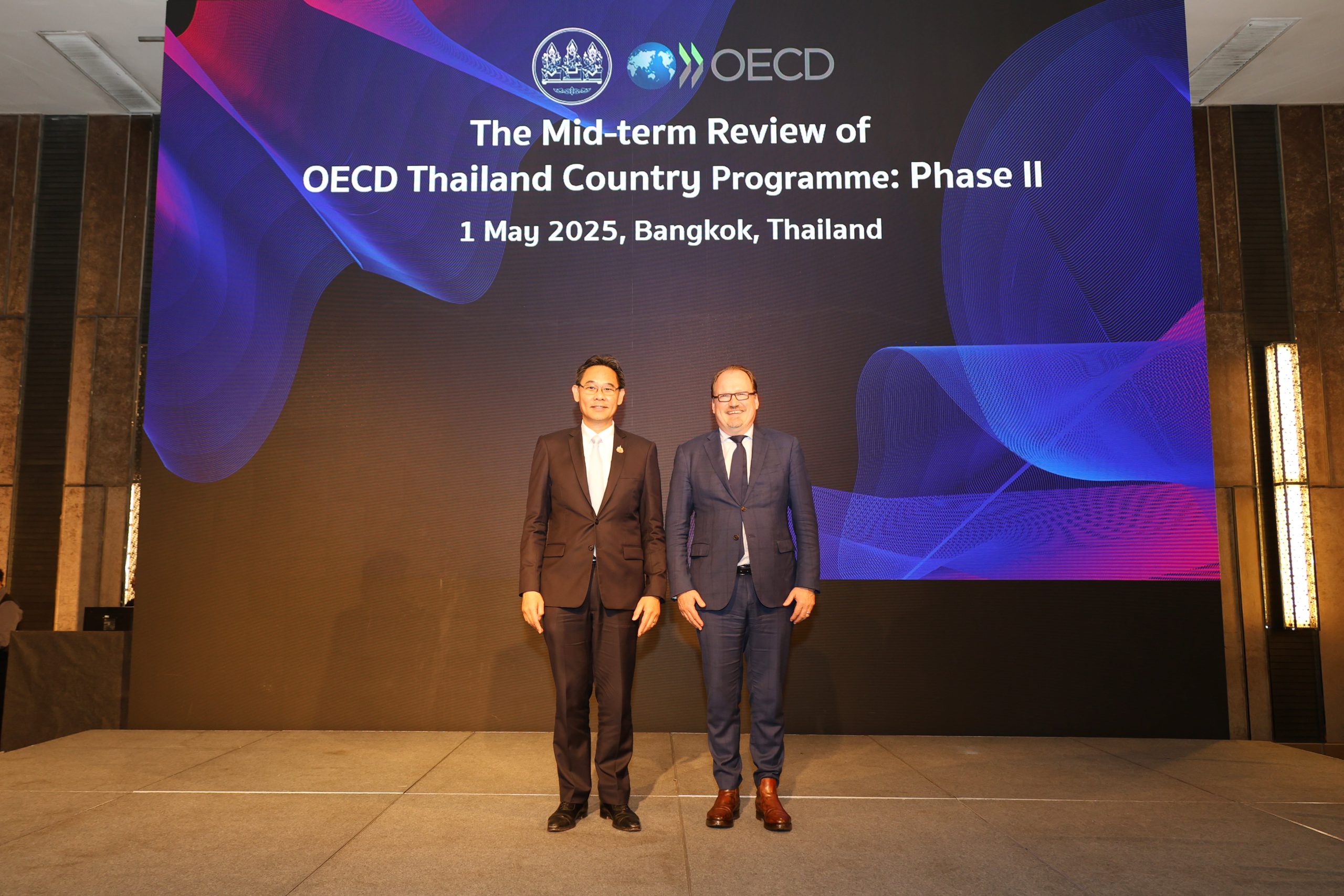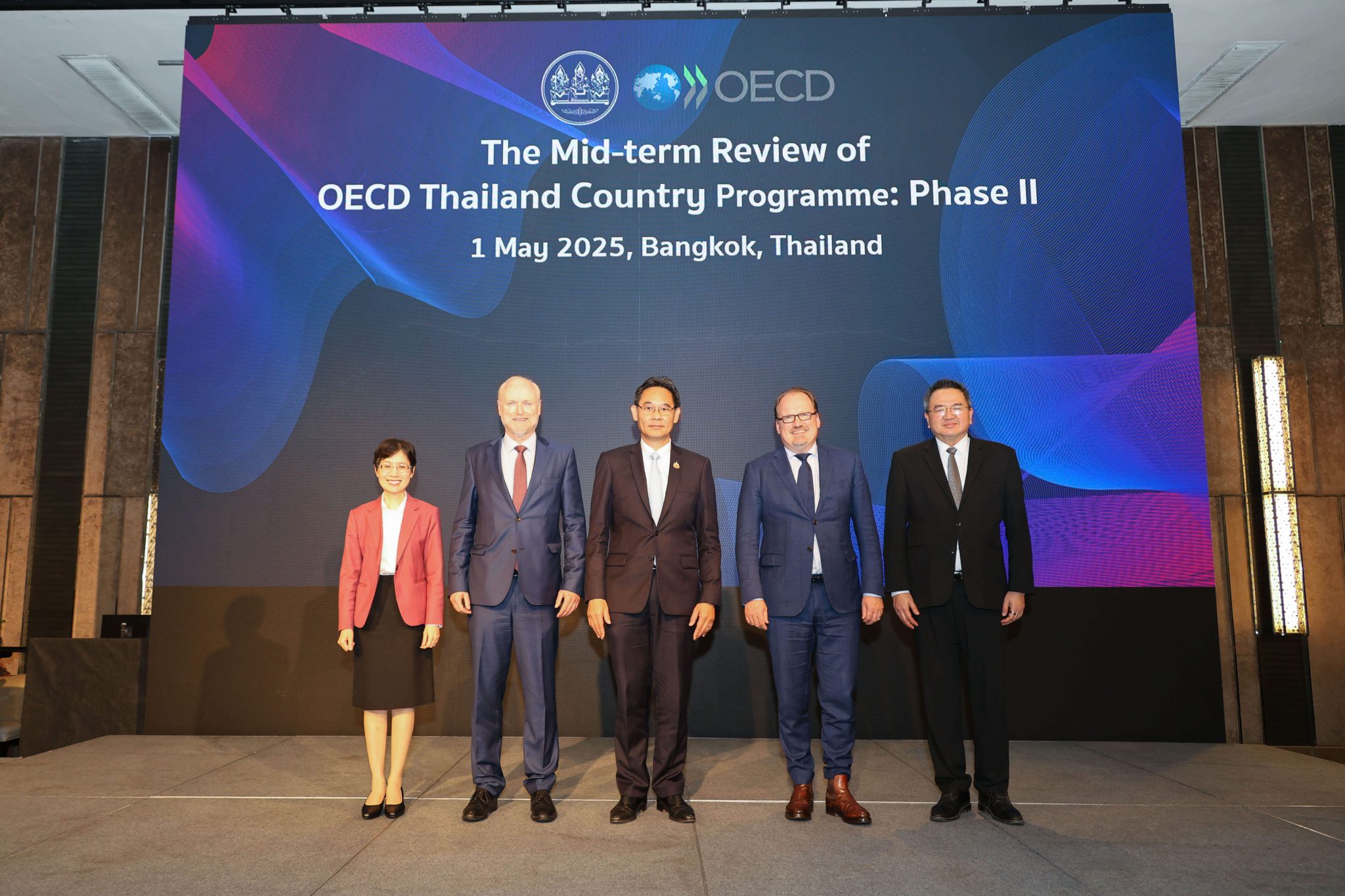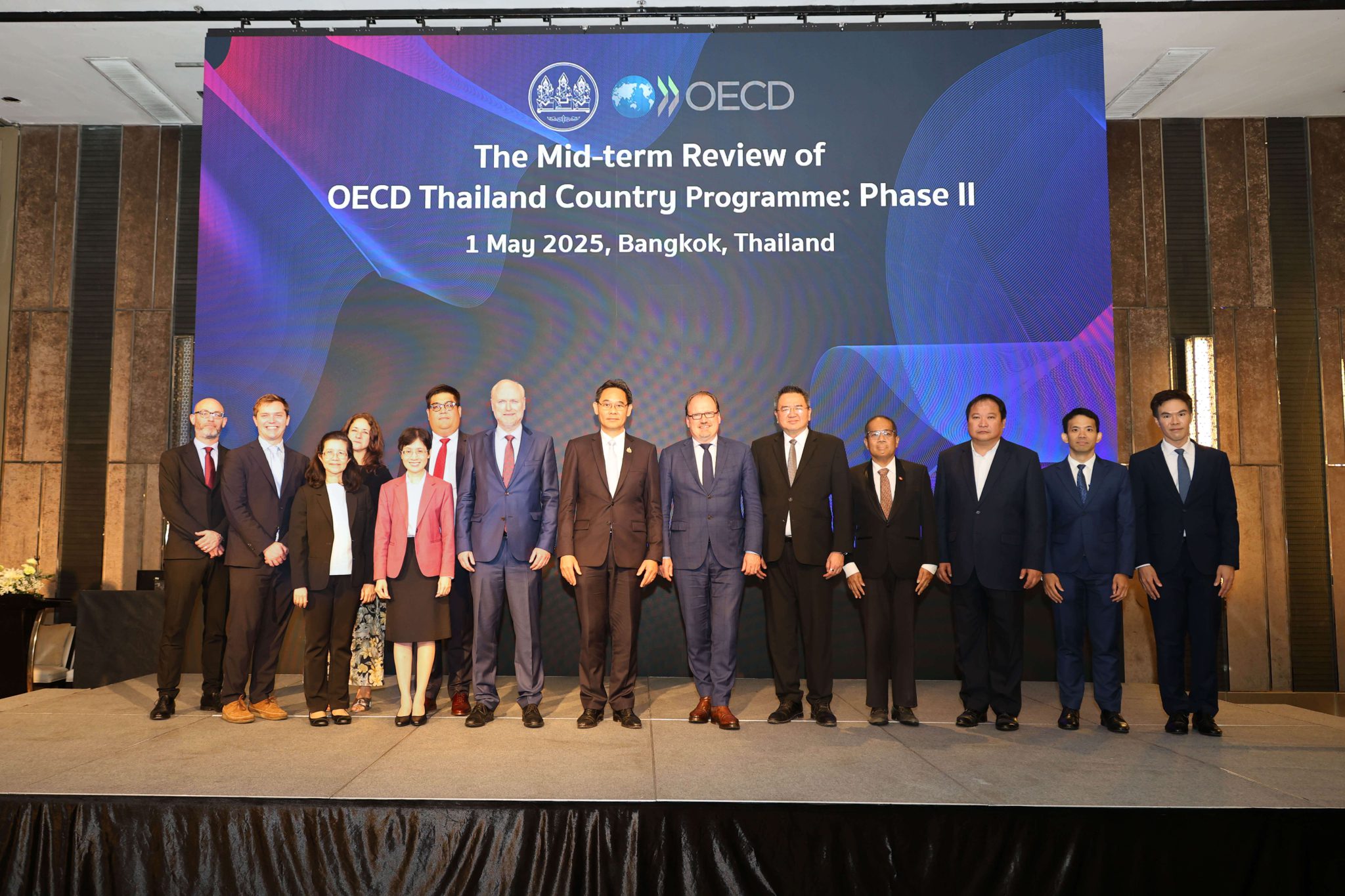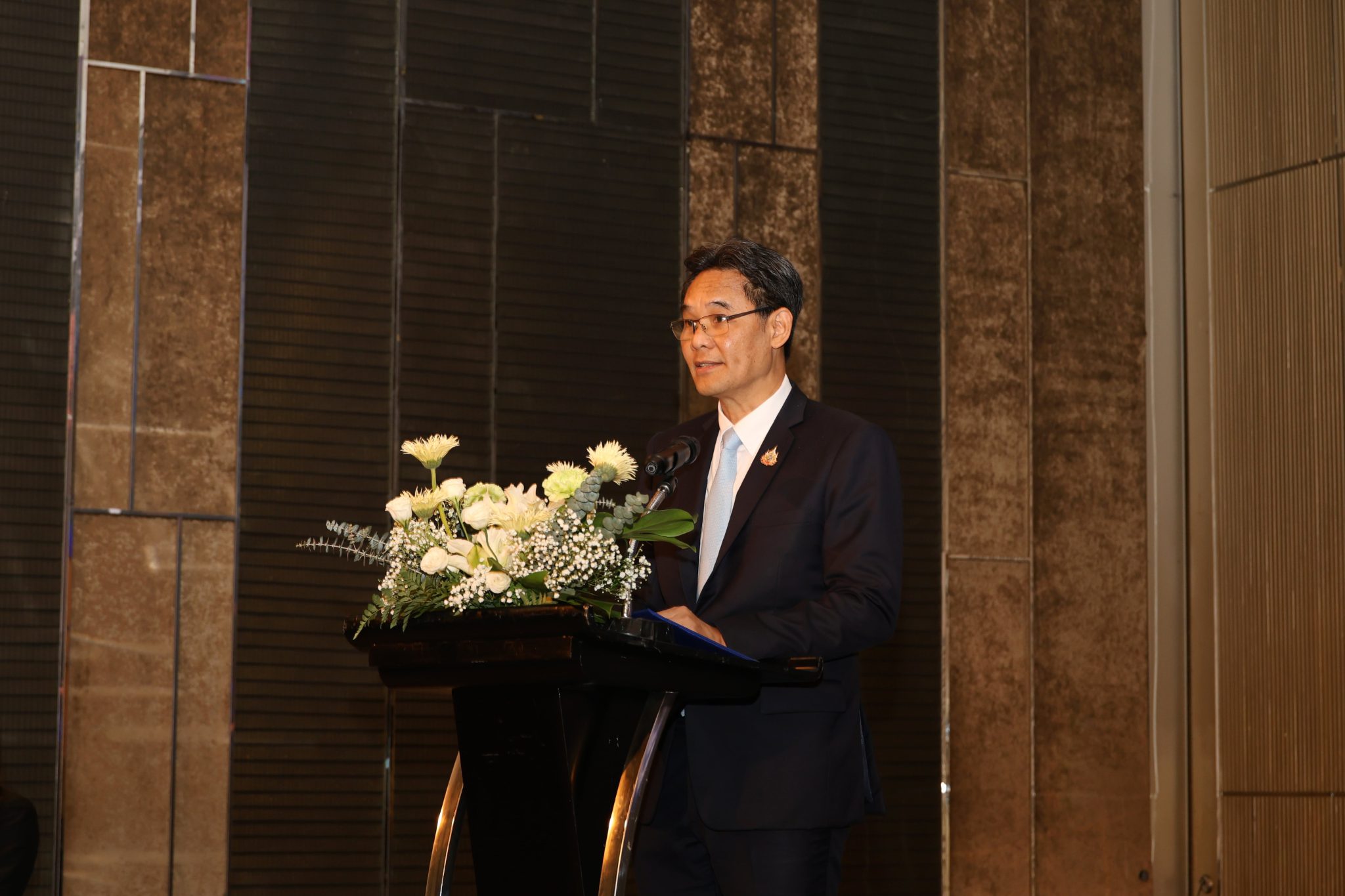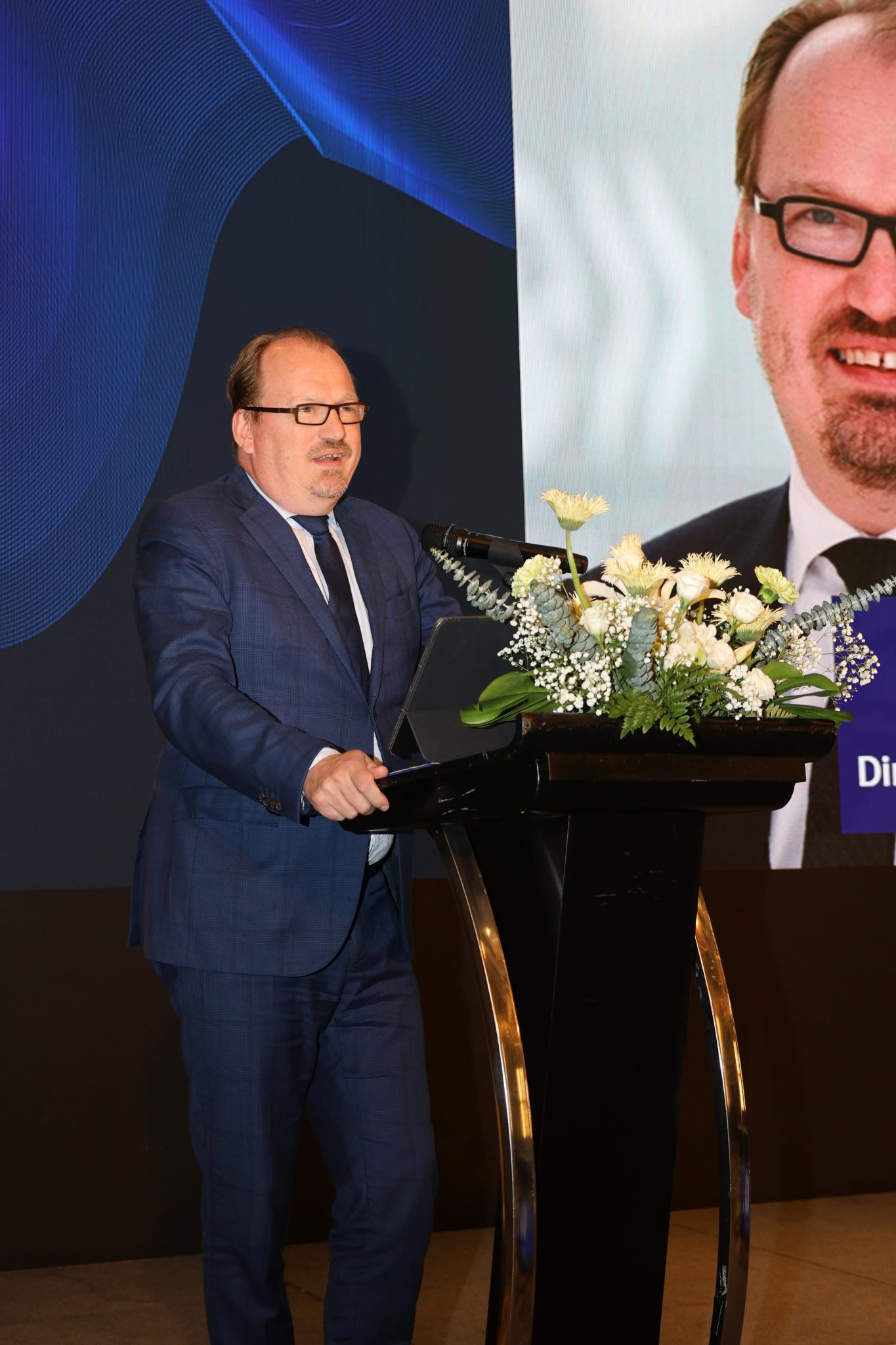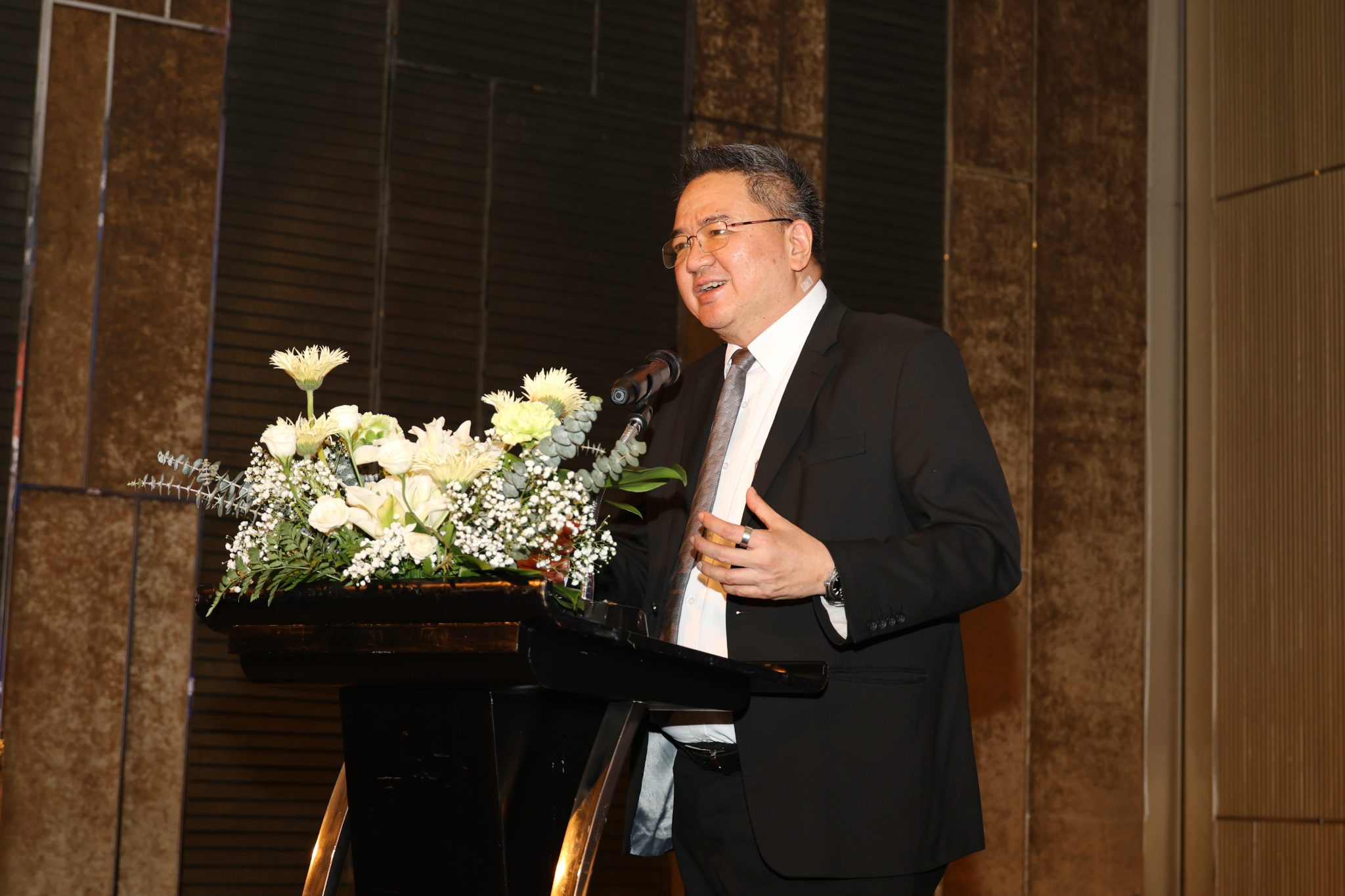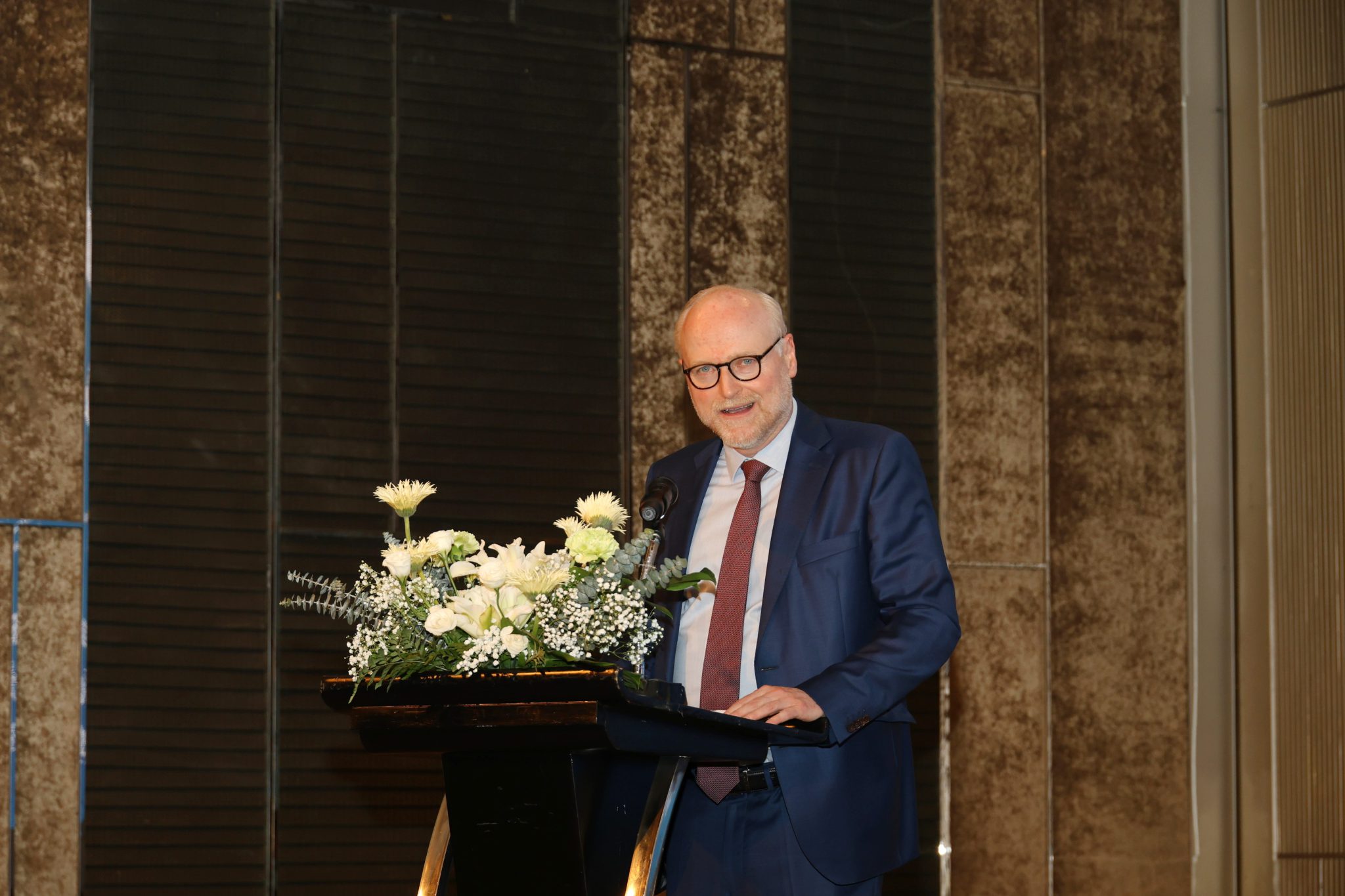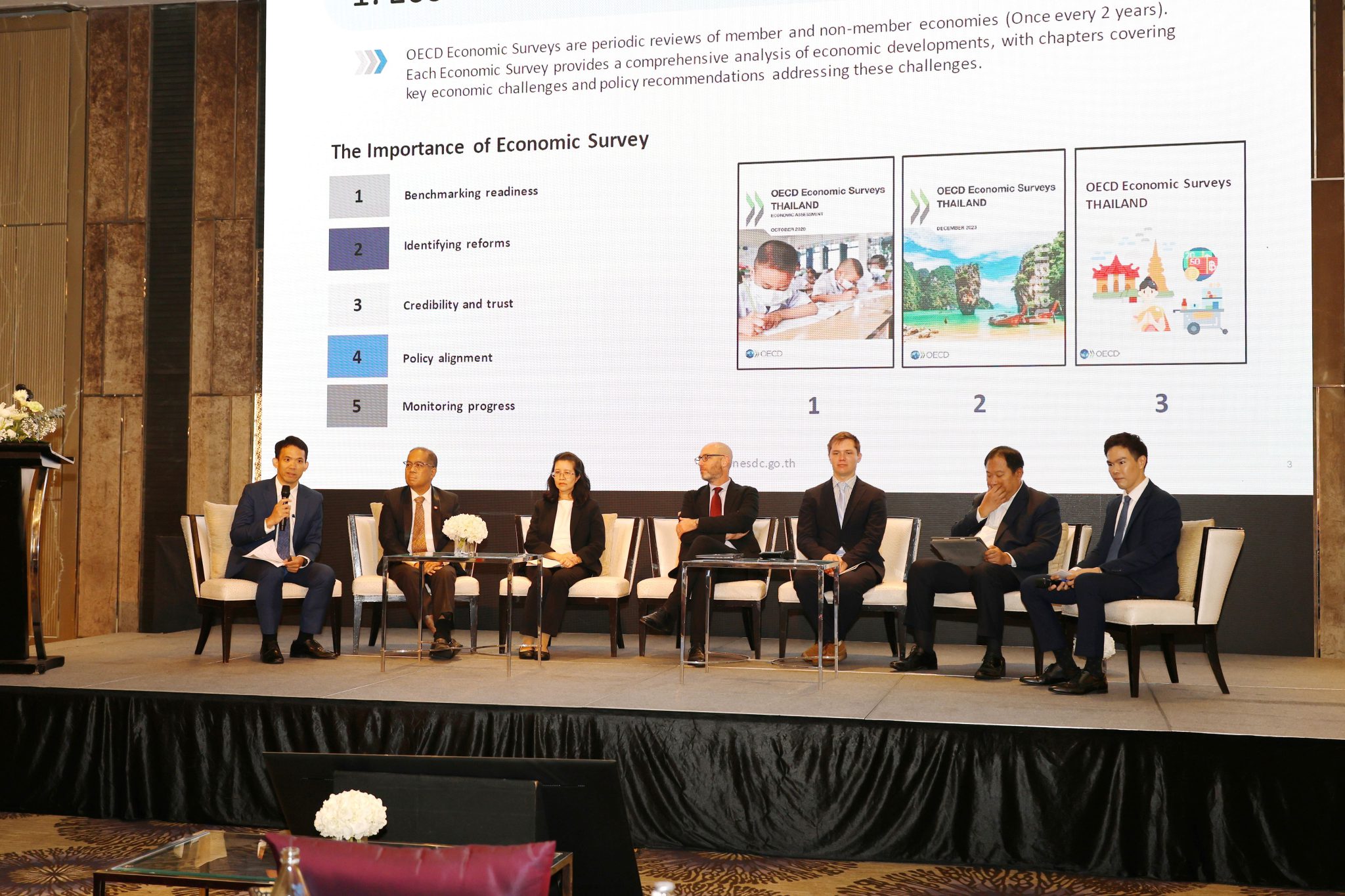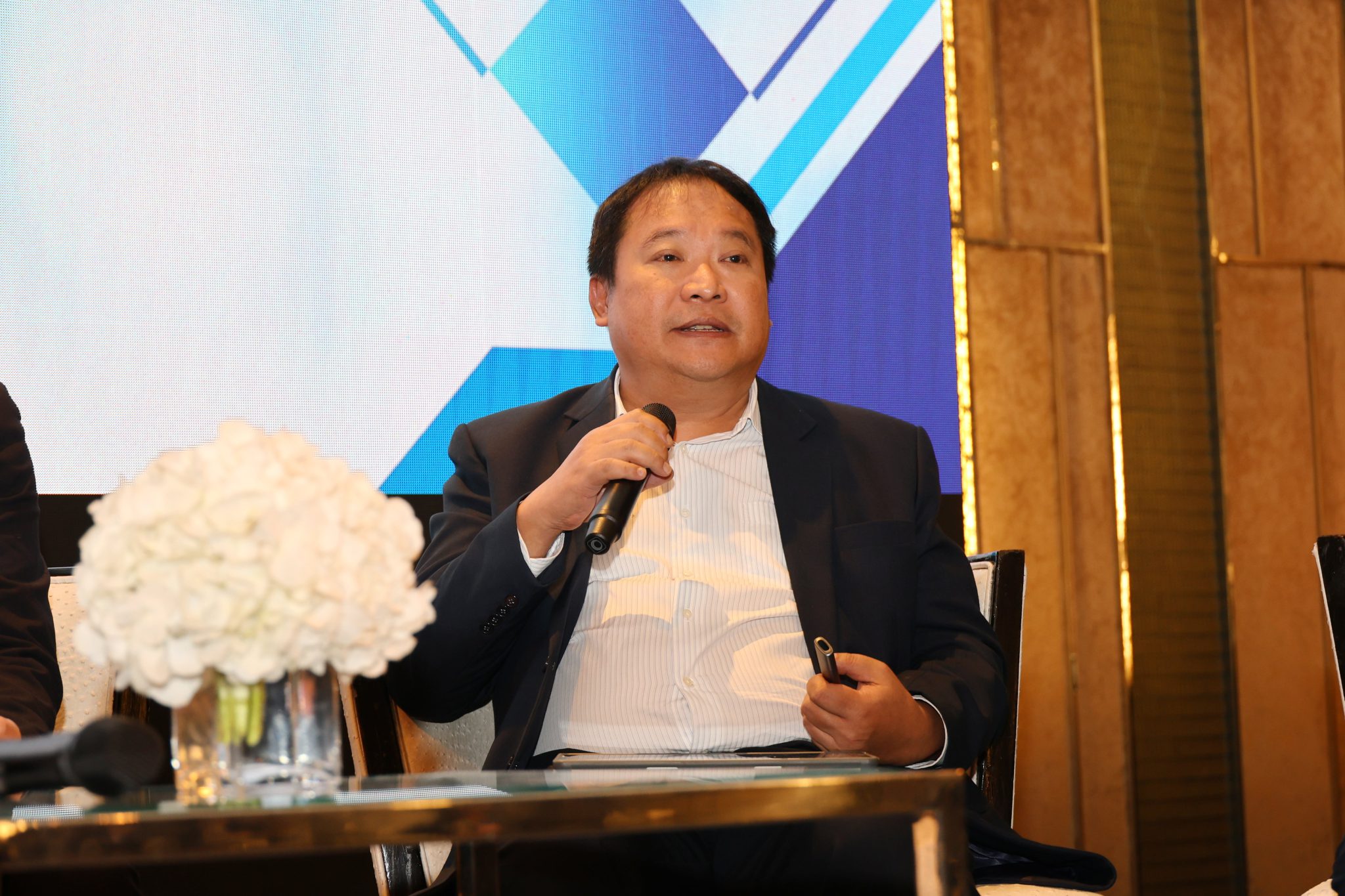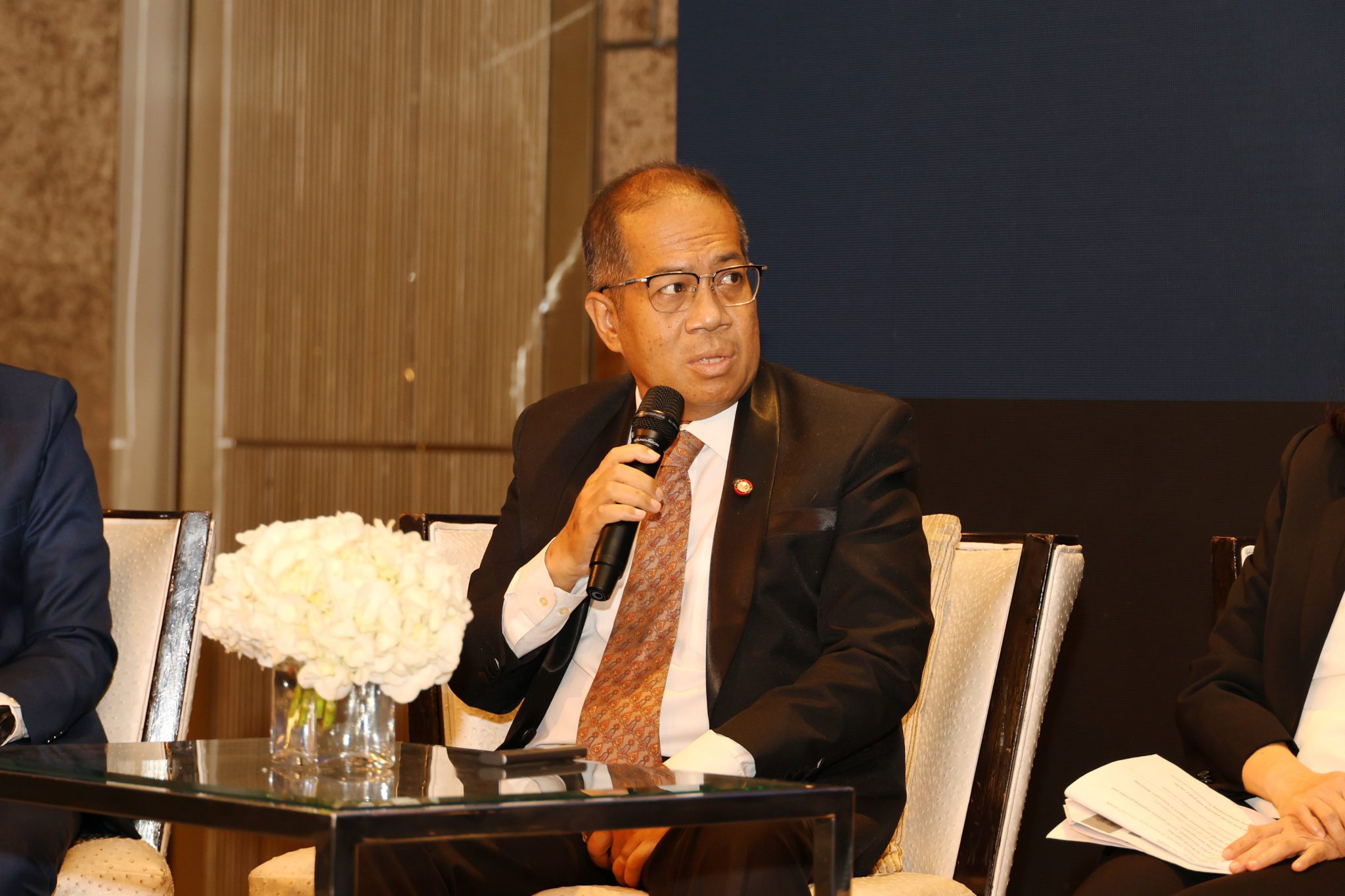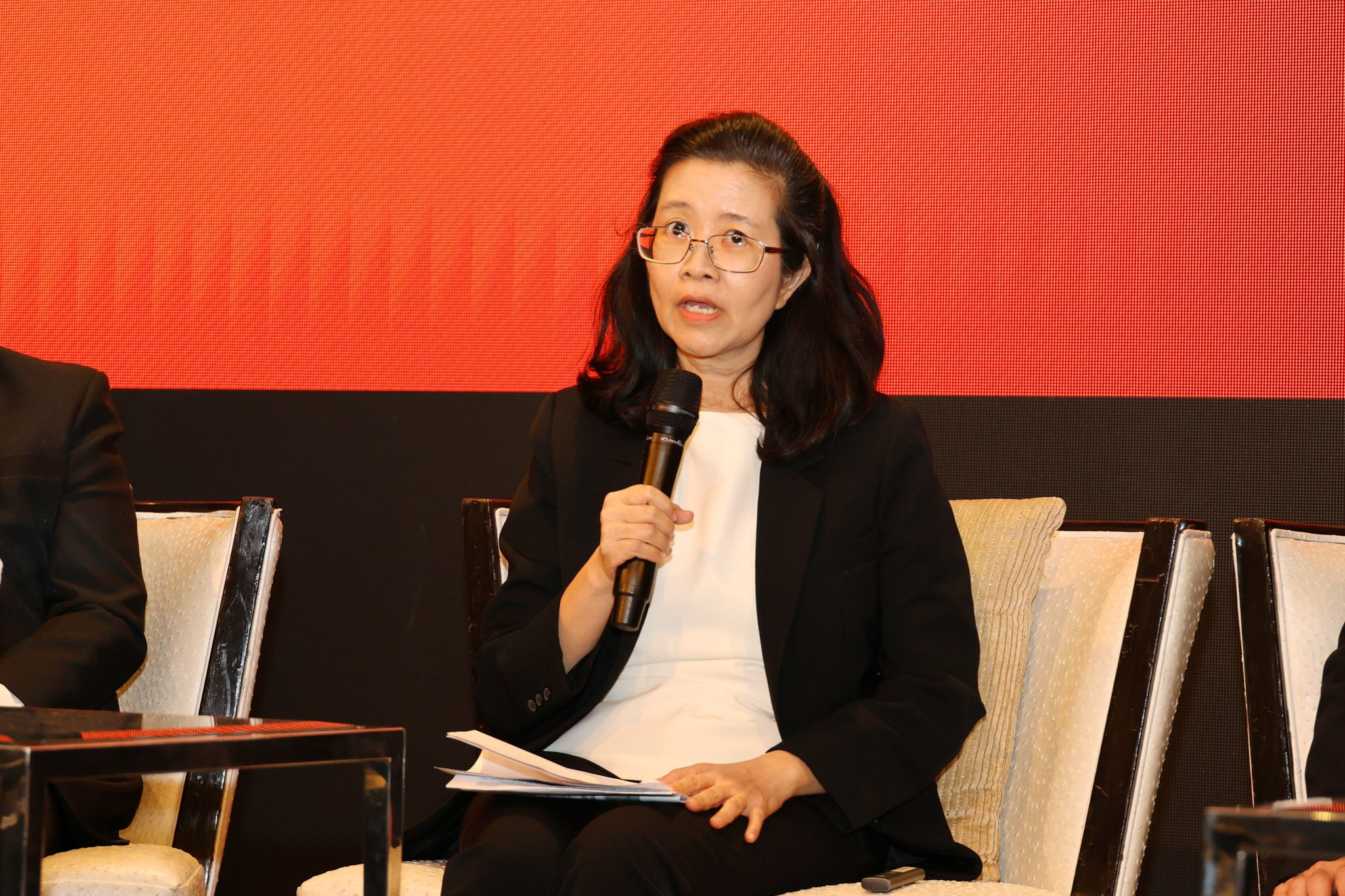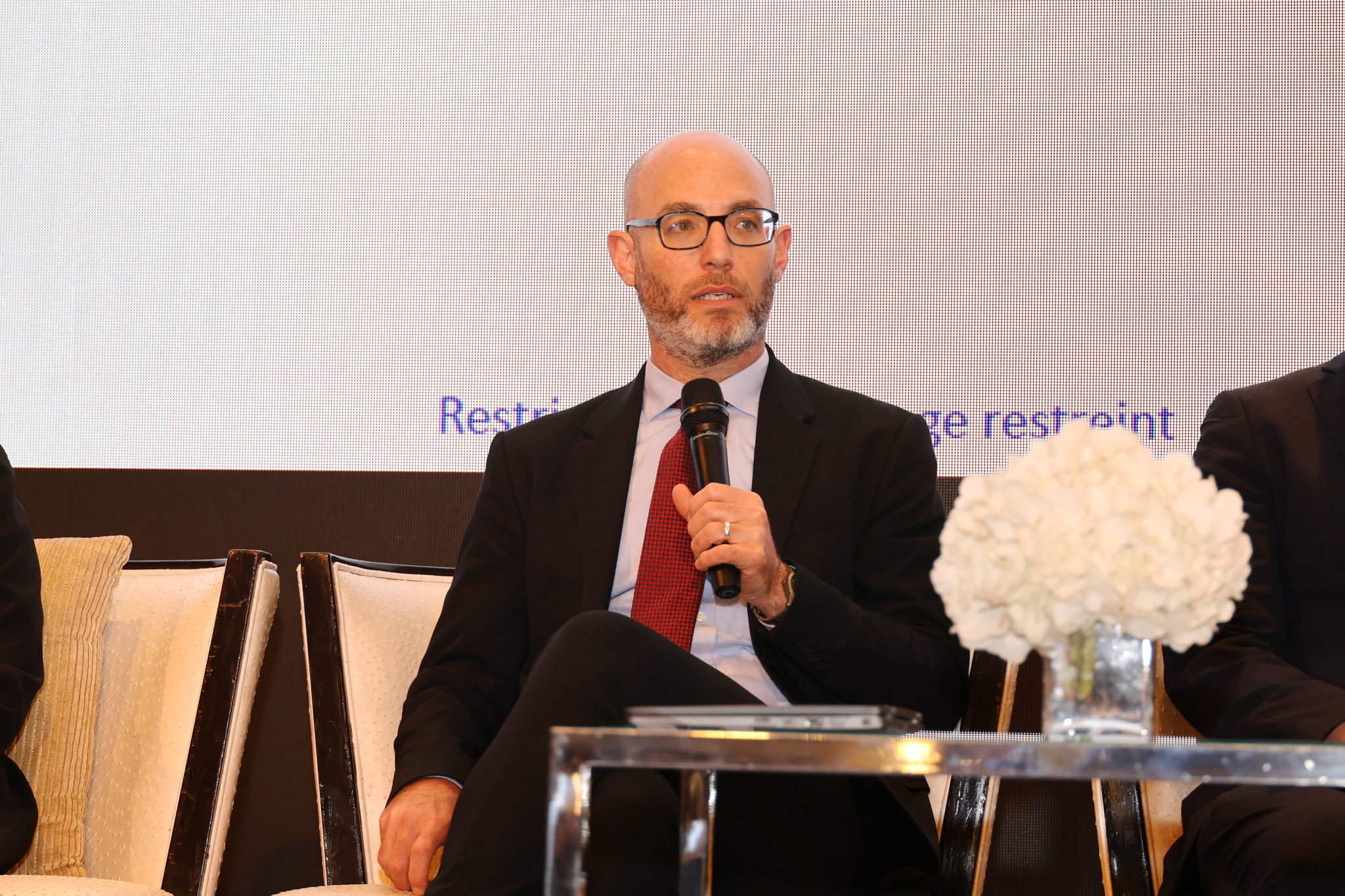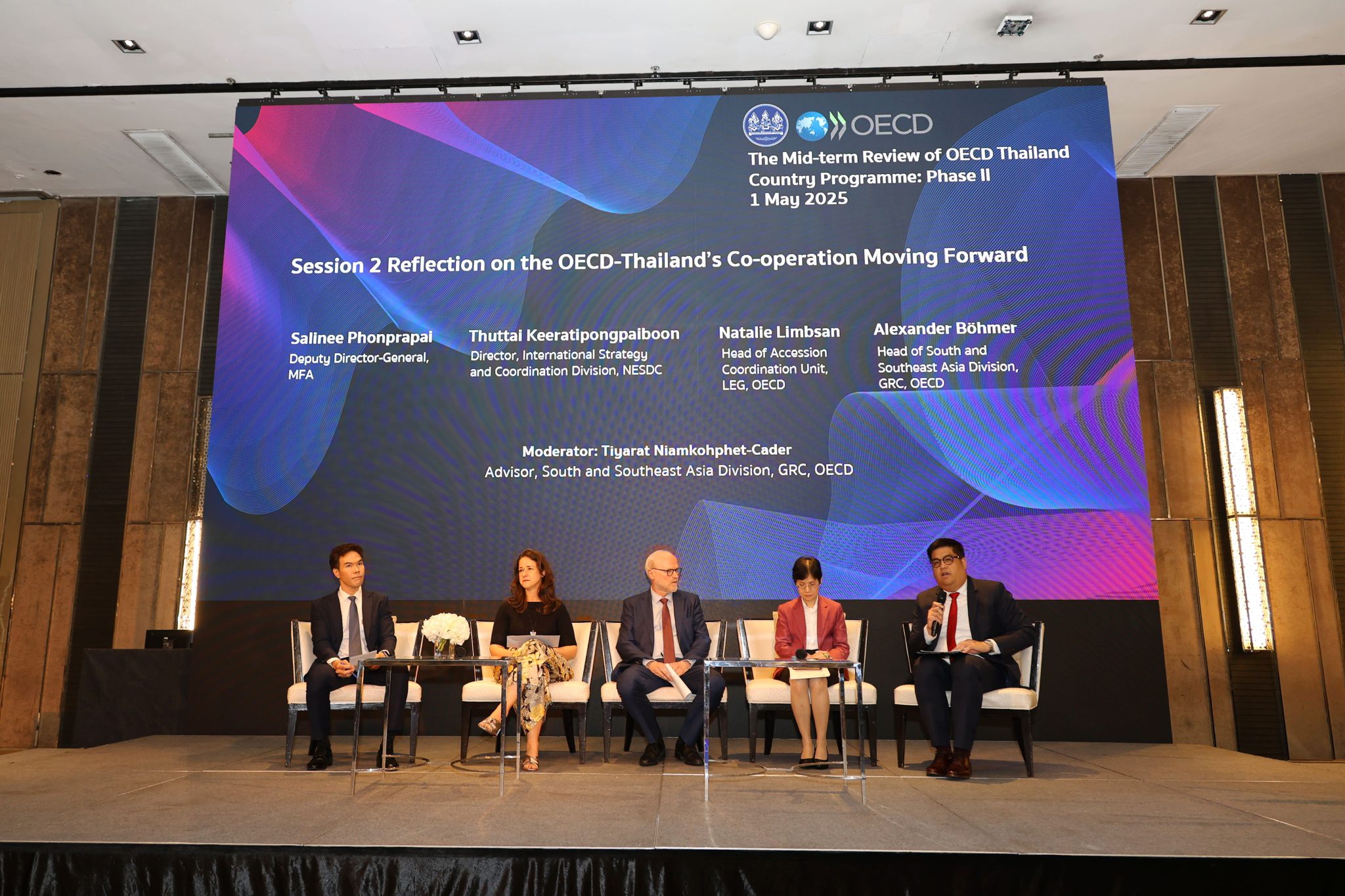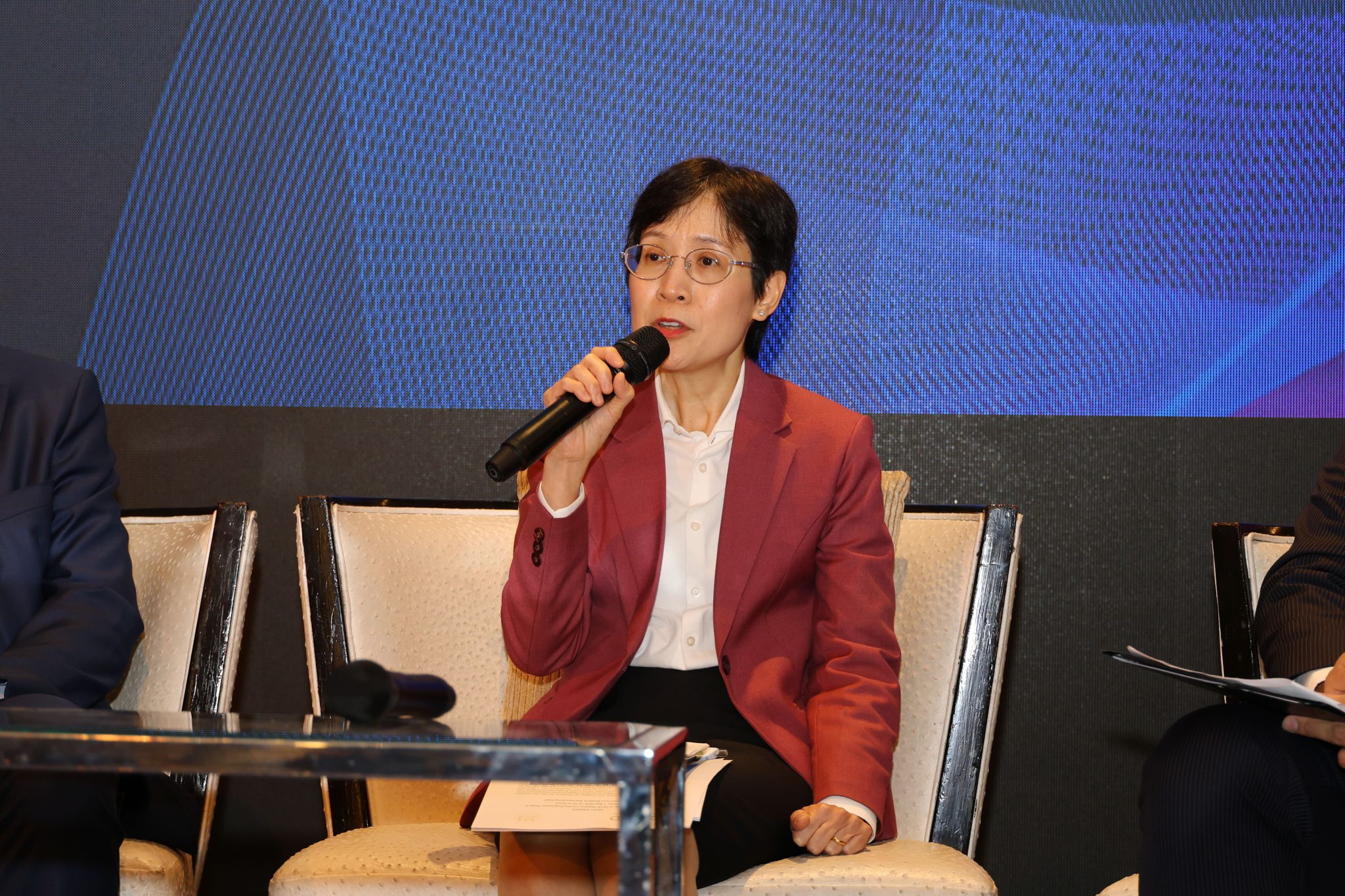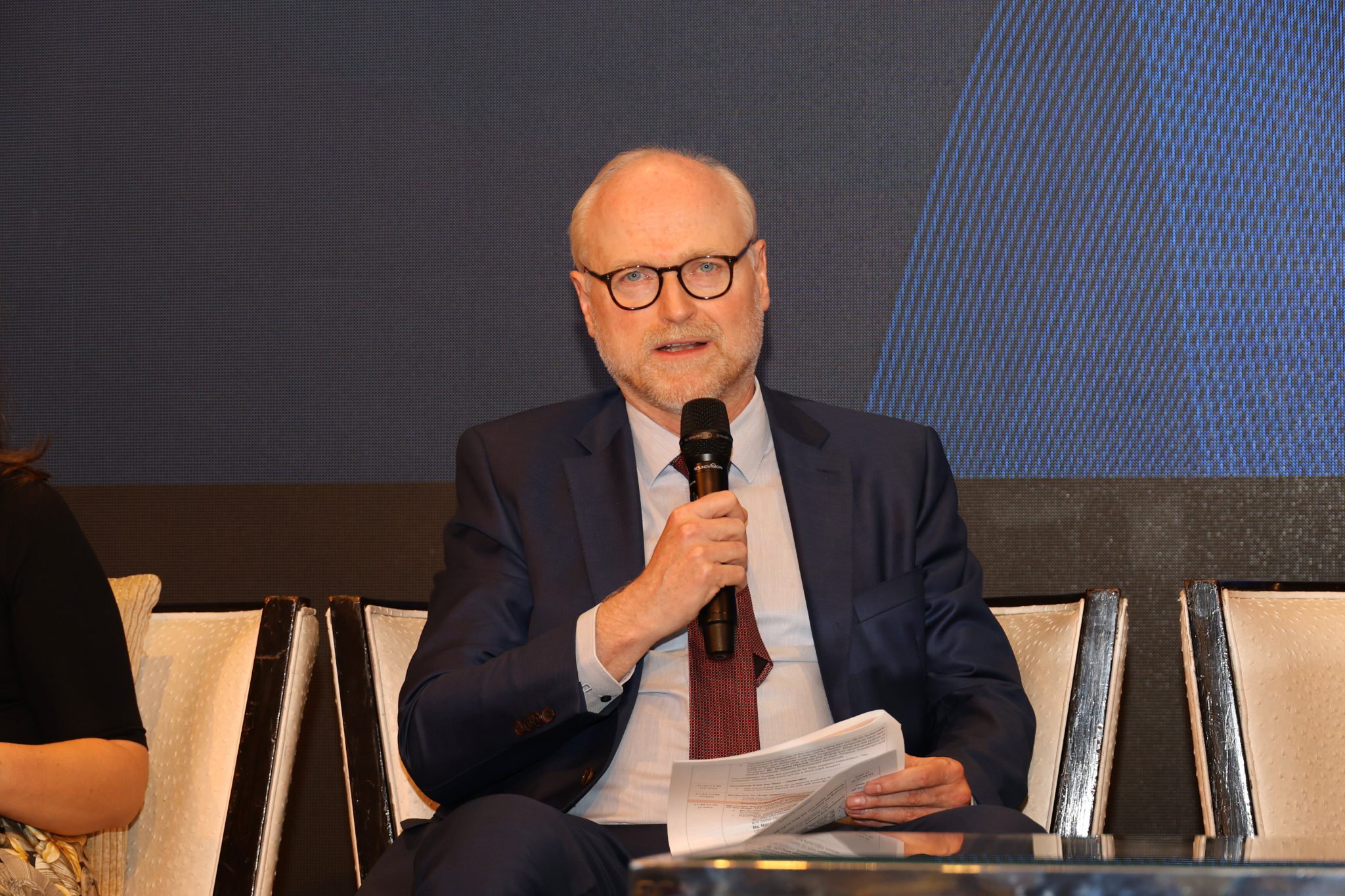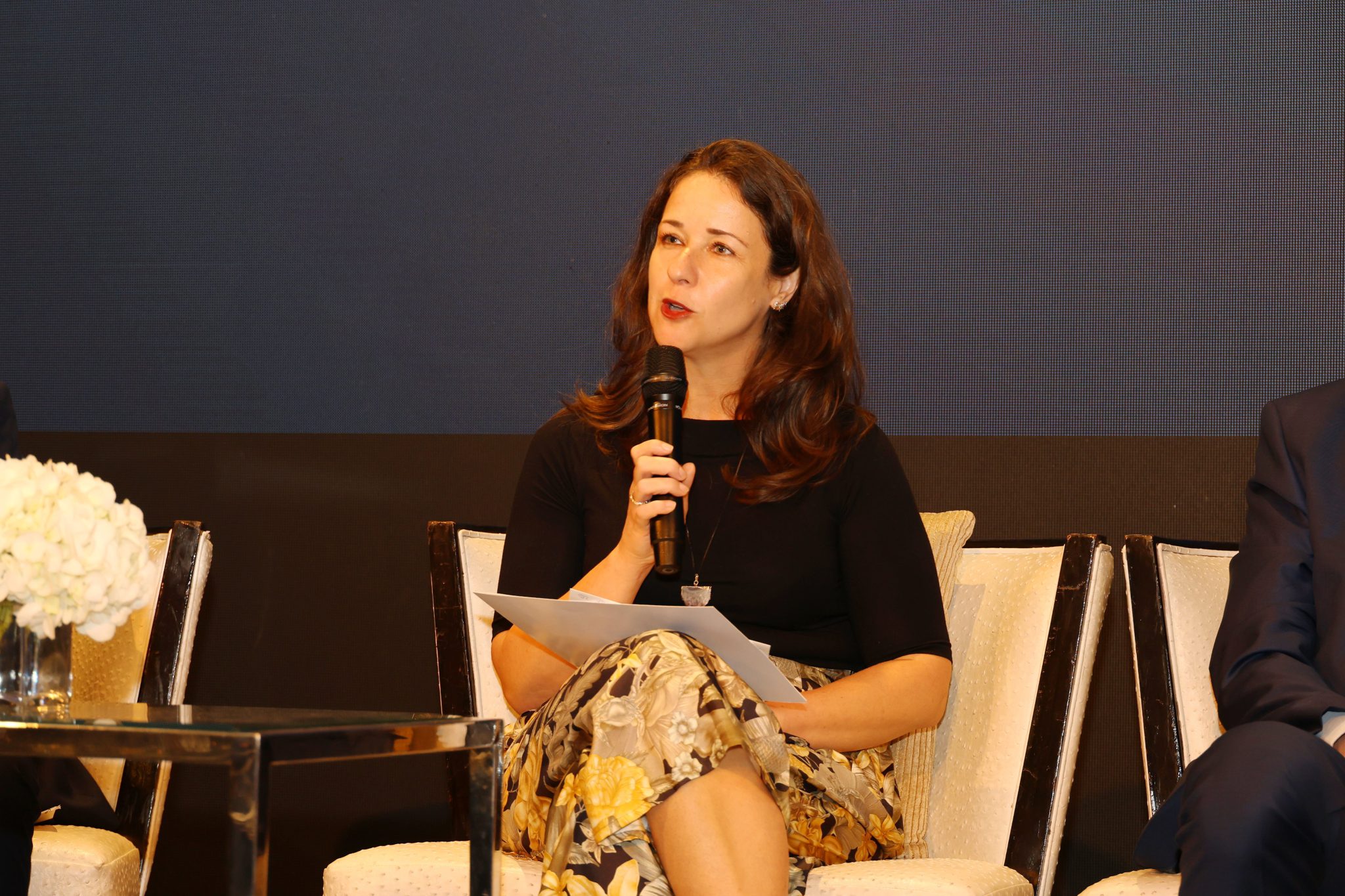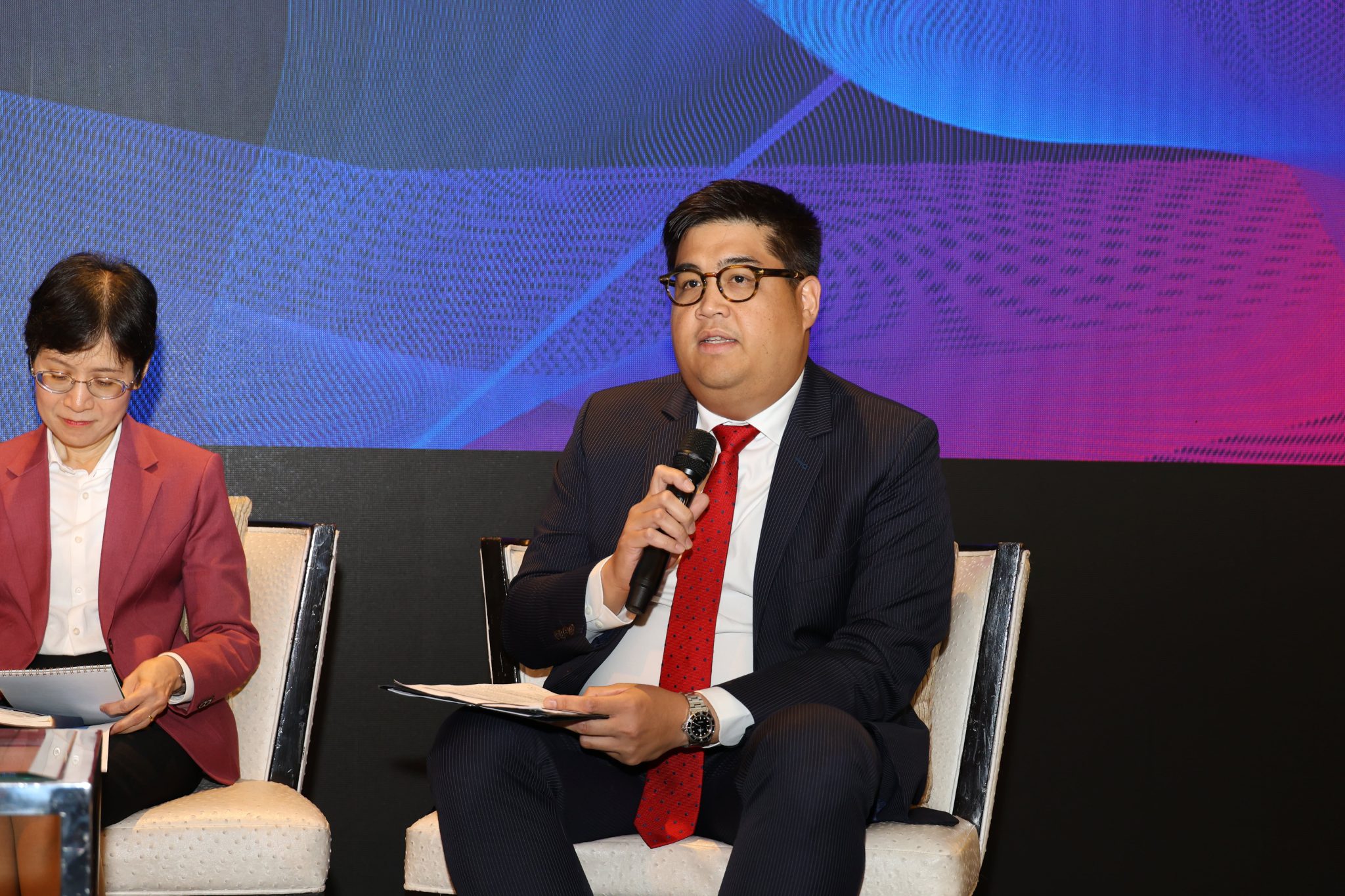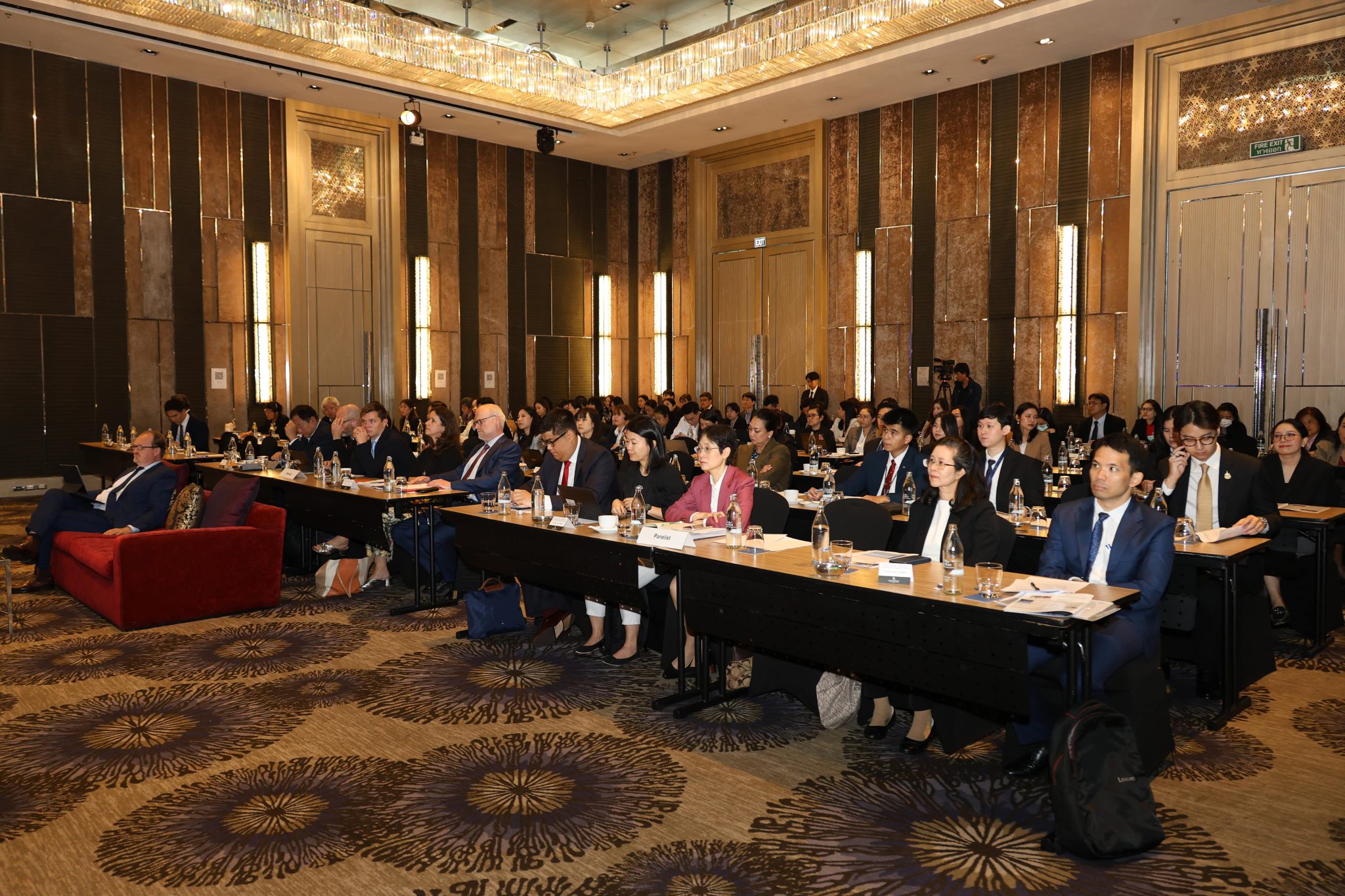On Thursday, May 1, 2025, the Office of the National Economic and Social Development Council (NESDC) in collaboration with the Organisation for Economic Co-operation and Development (OECD) organized the Conference to Disseminate the Mid-term Review Results of the OECD-Thailand Country Programme Phase 2 (The Mid-term Review of CP2) at Renaissance Bangkok Ratchaprasong Hotel, withMr. Danucha Pichayanan, Secretary-General of NESDC, Mr. Andreas Schaal, Director for OECD Global Relations and Co-operation, and the OECD Sherpa to the G7, the G20 and APEC delivering opening remarks. Mr. Wanchat Suwannakitti, Deputy Secretary-General of NESDC, Mr. Nattha Pachayut, Advisor on Public Administration Development, Office of the Public Sector Development Commission, Ms. Salinee Polpraipai, Deputy Director-General of the Department of International Economic Affairs, Ministry of Foreign Affairs (MFA), and representatives from Thai government agencies and OECD Directorates implementing CP Phase 2 participated in the panel discussion
The conference aimed to review the implementation results and recommendations from OECD that Thailand has received from CP Phase 2, particularly focusing on concrete achievements in developing Thailand’s standards to align with OECD standards, as well as to exchange views on future cooperation between Thailand and OECD to further strengthen bilateral relations
On this occasion, the Secretary-General of NESDC emphasized the benefits of CP Phase 2 implementation that various sectors including government, private sector, and civil society can utilize the assessment reports and policy recommendations prepared by OECD for Thailand, such as anti-foreign bribery, good governance of state-owned enterprises, and clean energy investment plans, to adapt and develop operations in line with OECD standards. Furthermore, CP Phase 2 supports Thailand’s adherence to OECD legal instruments, which is a crucial condition for Thailand’s OECD membership
Meanwhile, Mr. Andreas Schaal emphasized that the CP project that Thailand has implemented through 2 phases represents tangible results that enabled Thailand to enter the OECD membership process in 2024. The CP project supports Thailand’s structural reforms across various sectors, providing guidance for Thailand to amend relevant laws, policies, and practices to meet higher international standards, which will help develop and elevate Thailand’s economy, society, and quality of life
Following the opening ceremony, there was a presentation of the CP Phase 2 overview by Mr. Alexander Böhmer, Head of South and Southeast Asia Division, OECD Global Relations and Co-operation, followed by Panel Session 1 on reviewing results from CP Phase 2 implementation, focusing on presenting outcomes of completed sub-projects such as upgrading anti-foreign bribery laws, public sector governance reform, promoting responsible business conduct, developing teacher quality and education statistics, promoting business competition, productivity analysis, and clean energy investment
Panel Session 2 on reflecting lessons learned from Thailand-OECD cooperation and the way forward focused on discussing approaches to enhance cooperation in preparation for the OECD membership process. Both sides emphasized the importance of capacity-building activities for government personnel to support Thai agencies in better understanding the membership process and receiving best practices for implementing legal, policy, and procedural adjustments to align with OECD standards. Additionally, during the membership process, Thailand can participate in other OECD projects or pursue cooperation with OECD beyond the membership process to enhance Thailand’s participation in OECD and its leadership role in Southeast Asia
The final session of the conference was the closing remarks to summarize the overview, with Mr. Wanchat Suwannakitti, Deputy Secretary-General of NESDC and Mr. Alexander Böhmer, Head of South and Southeast Asia Division, OECD Global Relations and Co-operation expressing gratitude to Thai agencies and OECD for participating in CP Phase 2 implementation and emphasizing that the CP project will help Thailand achieve its goal of becoming an advanced and sustainable country. CP also serves as an important mechanism for preparing the country for the OECD membership process to achieve full membership by 2030, in line with the Thai government’s target
Furthermore, the OECD-Thailand Country Programme Phase 2 has a 3-year implementation period (2023-2026) comprising 20 sub-projects under 4 cooperation areas: governance, business environment and competitiveness, social inclusion and human capital development, and green recovery. The objective is to enable Thailand to access OECD knowledge and best practices, support Thailand’s national reform agenda across various policy sectors, and promote adherence to various OECD legal instruments, which will help develop Thailand’s domestic standards to international levels and bring Thailand closer to OECD membership. NESDC and MFA serve as the main agencies for overseeing, controlling, monitoring, and coordinating overall project implementation. Currently, 8 projects have been completed as follows:
Area 1: Governance – 1 completed project: Reinforcing Anti-corruption Framework with the Office of the National Anti-Corruption Commission as the responsible agency. The outcome is the report OECD Review of Thailand’s Legal and Policy Framework for Fighting Foreign Bribery , proposing approaches to strengthen the legal and policy framework for combating foreign bribery to enhance Thailand’s public sector transparency, published on August 30, 2024
Area 2: Business Environment and Competitiveness – 4 completed projects including (1) Strengthening Regulatory Reform and the Implementation of Good Regulatory Practice with the Office of the Council of State as the responsible agency. The outcome is the report Regulatory Reform in Thailand: Reinforcing an Effective Regulatory Environment focusing on analyzing the structure and approaches for developing the formulation, assessment, and enforcement of Thailand’s regulations, published on May 1, 2025. (2) Maintaining a Sound Economic Policy through the Second Economic Survey with NESDC as the responsible agency. The outcome is the report OECD Economic Surveys: Thailand 2023 focusing on policies to enhance productivity and develop the business environment, published on December 7, 2023. (3) Deepening Collaboration to Promote Responsible Business Conduct (RBC) with the Ministry of Foreign Affairs and Ministry of Justice as responsible agencies. The outcome is an E-Learning system on The Essentials of OECD Due Diligence for Responsible Business and (4) Supporting Reforms in the State-Owned Enterprises (SOEs) Sector with the State Enterprise Policy Office as the responsible agency. The outcome is the report OECD Review of the Corporate Governance of State-Owned Enterprises in Thailand proposing approaches to develop state-owned enterprises to be more transparent, sustainable, and have higher governance standards, published on January 30, 2025
Area 3: Social Inclusion and Human Capital Development – 2 completed projects including (1) Improving the Quality of Education Statistics with the Office of the Education Council and the Office of the Permanent Secretary, Ministry of Education as responsible agencies. The outcome is organizing workshops to enhance capabilities in collecting and applying Thailand’s education statistics for developing Thailand’s educational approaches, such as PISA test results. (2) Developing Modern Teachers with the Office of the Basic Education Commission as the responsible agency. The outcome is organizing training activities and workshops covering lesson design, digital platform usage, teaching material creation, and upgrading teacher professional standards to prepare Thai teachers for more modern and efficient learning management
Area 4: Green Recovery – 1 completed project: Enabling Clean Energy Financing and Investment Mobilisation with the Department of Alternative Energy Development and Efficiency as the responsible agency. The outcome is the Clean Energy Finance and Investment Roadmap of Thailand . OECD recommends that Thailand liberalize clean energy investment, particularly in small-scale renewable electricity generation and improving energy efficiency in buildings, published on June 10, 2024
Progress on CP Phase 2 implementation can be tracked at bit.ly/4esk7RY and progress on Thailand’s OECD membership can be tracked at bit.ly/43SdmE0

bit.ly/4esk7RY
CP2 Updates

